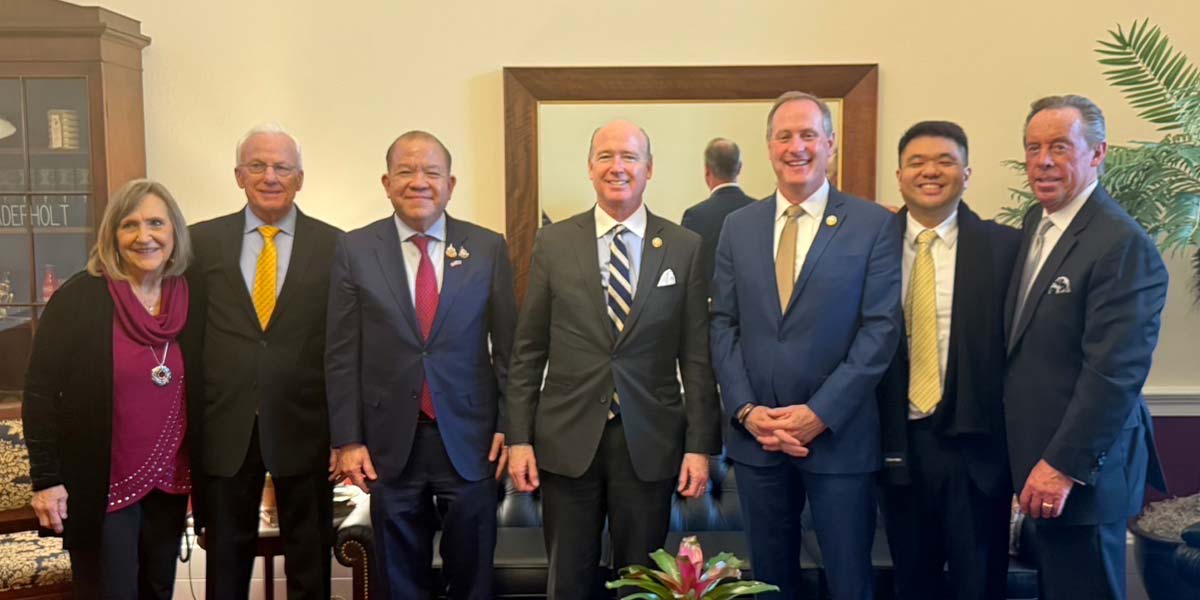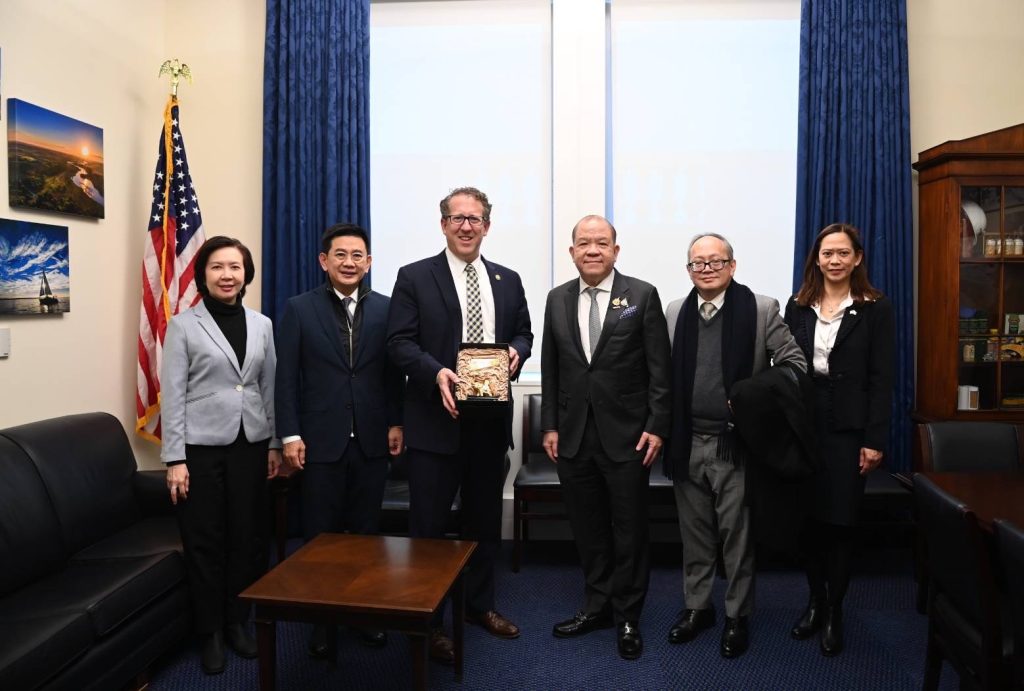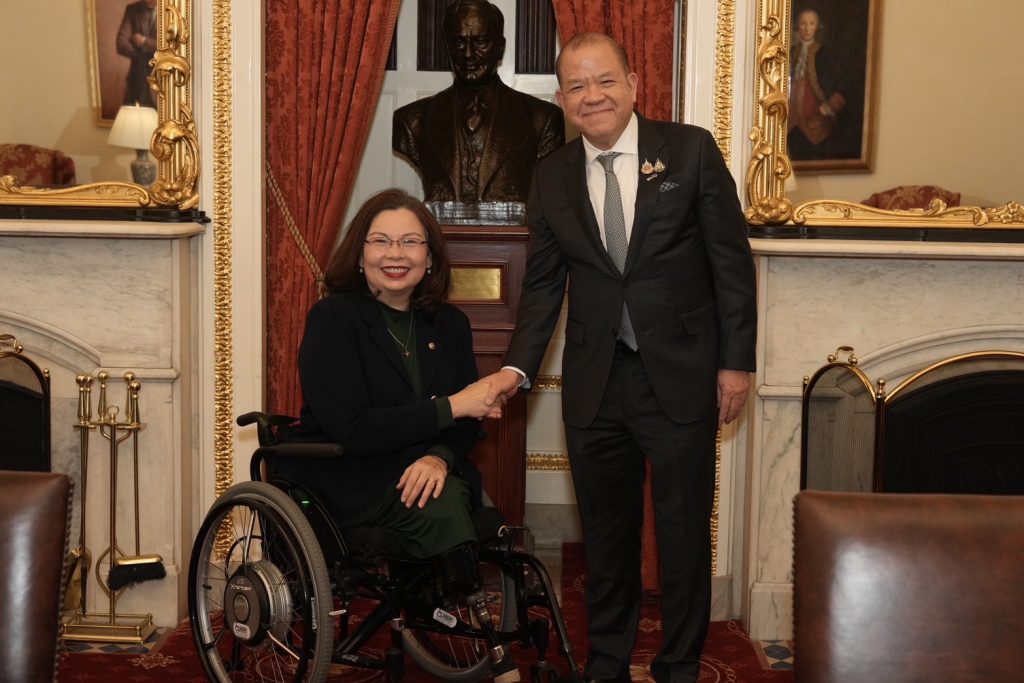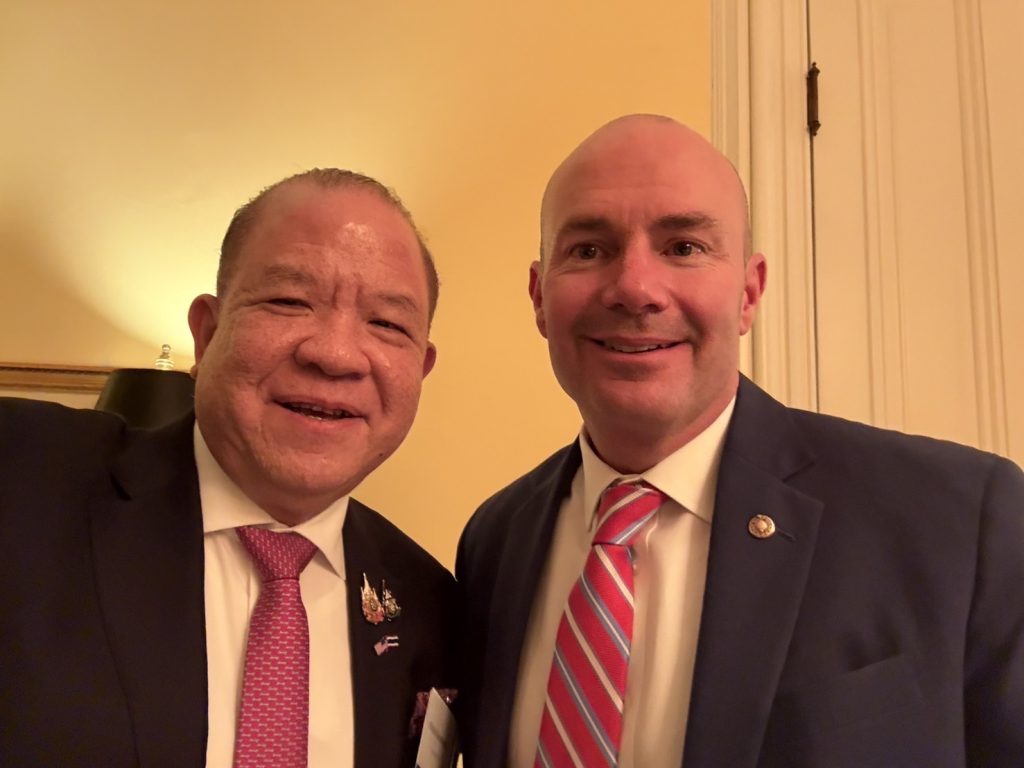Mr. Pichai Naripthaphan, Minister of Commerce, revealed after leading a Thai delegation to Washington, D.C., from February 4-8, 2025, that he attended the National Prayer Breakfast 2025 at The Washington Hilton, a high-profile event attended by top leaders, including U.S. President Donald Trump.
During his visit, he also engaged in discussions with members of Congress, senior U.S. government officials, and leading private sector representatives. The primary goal of these meetings was to promote trade and attract investment—an essential policy under the administration of Prime Minister Paetongtarn Shinawatra.
Minister Pichai highlighted that participating in the National Prayer Breakfast 2025, where President Trump delivered the opening speech, provided a crucial opportunity to build networks and exchange economic policies with U.S. officials, including members of Congress, cabinet ministers, private sector leaders, and international partners.
In addition, he met with key U.S. lawmakers and senior officials, such as Representative Robert Aderholt, Representative Tracey Mann, Senator Mike Lee, Senator Tammy Duckworth, and Senator Pete Ricketts from the Senate Foreign Relations Committee, as well as Representative Adrian Smith, Chairman of the Trade Subcommittee under the House Ways and Means Committee.
These meetings reaffirmed Thailand’s status as a key U.S. ally in the Indo-Pacific region. Minister Pichai also highlighted Thailand’s strong trade and investment environment, citing recent successes such as the completion of the Thailand-EFTA Free Trade Agreement (FTA) and ongoing FTA negotiations with the European Union, United Arab Emirates, South Korea, and Canada. These trade agreements will significantly enhance Thailand’s global competitiveness in the future.
Furthermore, he emphasized Thailand’s well-developed energy infrastructure, which supports industries such as data centers and artificial intelligence (AI). Major U.S. companies, including Google, Microsoft, and Amazon, have already made substantial investments in Thailand’s digital sector.
Minister Pichai also pushed for the United States to integrate Thailand into its supply chain, particularly in high-tech industries such as semiconductors and printed circuit boards (PCBs). Additionally, he promoted Thailand as a regional medical hub, positioning the country as a key player in healthcare services. He called for U.S. policy-level support to further strengthen bilateral trade relations.
Minister Pichai also engaged with the U.S. Chamber of Commerce (USCC) and the US-ASEAN Business Council (USABC), where he met with representatives from over 26 major U.S. companies, including Nasdaq, FedEx, The Asia Group, PepsiCo, IBM, Mars, Citi, Organon, Intel, Vriens & Partners, ConocoPhillips, Caterpillar, Seagate, Tyson Foods, Apple, DGA-Albright, Stonebridge Group, BowerGroupAsia, S&P Global, Visa, Boeing, Dow, Cargill, 3M, and Viatris.
Under the leadership of Prime Minister Paetongtarn Shinawatra, the Thai government prioritizes trade and investment opportunities, actively encouraging foreign investors to establish manufacturing bases in Thailand. In 2024, Thailand recorded over THB 1.13 trillion in investment promotion applications, the highest in a decade. Additionally, Thai exports grew by 5.4%, reaching a value of THB 10.5 trillion.
Minister Pichai also highlighted the Treaty of Amity, which grants exclusive privileges to U.S. businesses, allowing them to hold 100% ownership in Thailand—an advantage not extended to any other country.
Minister Pichai stated that U.S. business leaders maintain a positive outlook on Thailand, recognizing its strategic importance as a regional manufacturing hub. He invited more U.S. companies to invest in key industries such as pharmaceuticals, energy, digital technology, and agri-food.
The Ministry of Commerce pledged full support through policy incentives and investment facilitation, ensuring smooth business operations and addressing any challenges that may arise.








